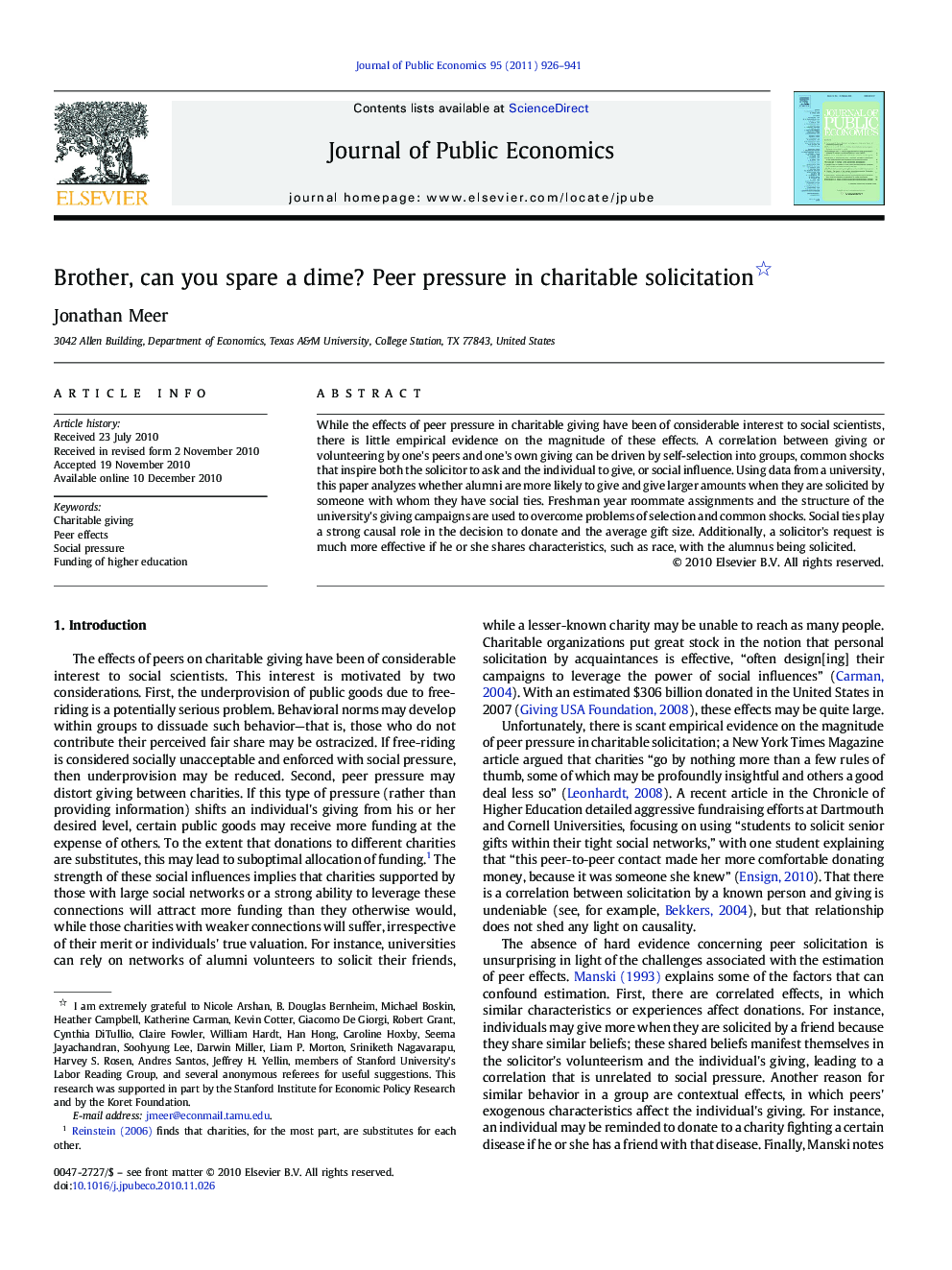| Article ID | Journal | Published Year | Pages | File Type |
|---|---|---|---|---|
| 969380 | Journal of Public Economics | 2011 | 16 Pages |
While the effects of peer pressure in charitable giving have been of considerable interest to social scientists, there is little empirical evidence on the magnitude of these effects. A correlation between giving or volunteering by one's peers and one's own giving can be driven by self-selection into groups, common shocks that inspire both the solicitor to ask and the individual to give, or social influence. Using data from a university, this paper analyzes whether alumni are more likely to give and give larger amounts when they are solicited by someone with whom they have social ties. Freshman year roommate assignments and the structure of the university's giving campaigns are used to overcome problems of selection and common shocks. Social ties play a strong causal role in the decision to donate and the average gift size. Additionally, a solicitor's request is much more effective if he or she shares characteristics, such as race, with the alumnus being solicited.
Research Highlights► Uses alumni donations, accounting for self-selection and shared experience. ► Peer pressure in charitable solicitation has effects on patterns of giving. ► Requests are more effective if characteristics are shared with the solicitee.
